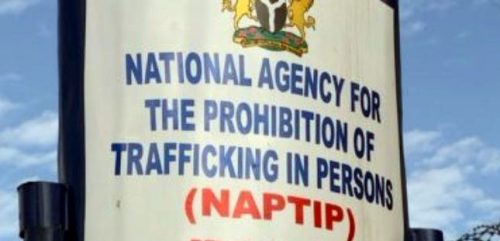Fitch warns rising govt exposure, CBN policies threaten Nigerian bank stability

BY TEMITOPE ADEBAYO
Fitch Ratings has raised serious concerns over the mounting risks facing Nigerian banks, citing excessive exposure to government debt and restrictive monetary policies by the Central Bank of Nigeria (CBN) as critical threats to the sector’s stability and profitability.
The global ratings agency estimates that sovereign-related assets—such as treasury bills, bonds, and unremunerated reserves—account for 35 per cent of total banking sector assets and an alarming 350 per cent of total equity. Fitch warned that this high concentration exposes the sector to systemic risk in the event of a sovereign default.
Speaking during a webinar co-hosted with Renaissance Capital, Fitch’s Director for African Banks, Tim Slater, stressed that Nigerian banks are also being weighed down by the CBN’s steep 50 per cent Cash Reserve Ratio (CRR), which requires banks to place a significant portion of their naira deposits with the apex bank without earning interest.
READ ALSO: Ezekwesili flay’s FG over Natasha’s arraignment
“These unremunerated reserves severely constrain bank profitability,” Slater said, noting that as of December 2024, such reserves made up 17 per cent of total banking assets—up from 12 per cent in 2016—and now represent 46 per cent of naira deposits, nearly doubling from 27 per cent in 2016.
He explained that while the CRR has officially risen, actual liquidity pressure on banks has eased slightly under the current CBN leadership, as arbitrary debits seen in the past have given way to a more consistent application of the policy.
“Greater transparency is helping banks better manage liquidity, even as the official CRR remains high,” Slater noted.
Nonetheless, Fitch highlighted that several other CBN policies continue to impair the sector. Among them is the mandatory minimum Loan-to-Deposit Ratio (LDR) of 50 per cent, which encourages aggressive lending and may increase non-performing loans (NPLs) if credit quality deteriorates.
Additionally, CBN’s restriction on net long foreign currency positions has forced banks to offload surplus forex holdings, limiting their ability to benefit from exchange rate revaluations and increasing vulnerability to naira depreciation. The sector has also been hit with windfall taxes on FX gains, further eroding profitability.
“These policy measures, though intended to stabilise the economy and support the naira, have squeezed banks’ operational flexibility and earnings capacity,” Fitch stated.
The warning comes on the heels of a CBN directive mandating that banks under regulatory forbearance—particularly for dollar-denominated loans in the oil and gas sector—suspend dividend payments. Fitch warned that these exposures often breach the Single Obligor Limit (SOL), posing a significant threat to capital adequacy.
Without further regulatory forbearance, such loans could be reclassified as impaired, requiring banks to make heavy loan loss provisions.
While this directive sparked investor concern, banks affected have moved quickly to reassure shareholders of their compliance plans. FirstHoldCo Plc, for instance, confirmed that its banking subsidiary FirstBank, is working to exit forbearance and address SOL breaches caused by two large foreign currency loans impacted by the naira’s over 200 per cent devaluation between 2023 and 2024.
The HoldCo stated that the loans are part of broader syndicated industry exposures and that efforts are ongoing to restructure and re-tenor the facilities to match improved asset performance.
Despite regulatory pressure, FirstHoldCo said it remains committed to paying dividends, pending regulatory approval.
Fitch concluded by noting that Nigerian banks remain tightly linked to the country’s sovereign creditworthiness. “No bank can be rated above the sovereign,” Slater emphasised, citing the banking system’s overwhelming exposure to government securities and CBN-held reserves.
Fitch also pointed to the CBN’s 30 per cent liquidity ratio rule as another driver pushing banks toward government asset holdings. This sovereign concentration, combined with limited geographic diversification, continues to cap long-term credit ratings for most Nigerian banks at the sovereign level.
The outlook underscores deep structural constraints in the Nigerian financial system—constraints that Fitch warns could undermine solvency if macroeconomic conditions deteriorate further.










